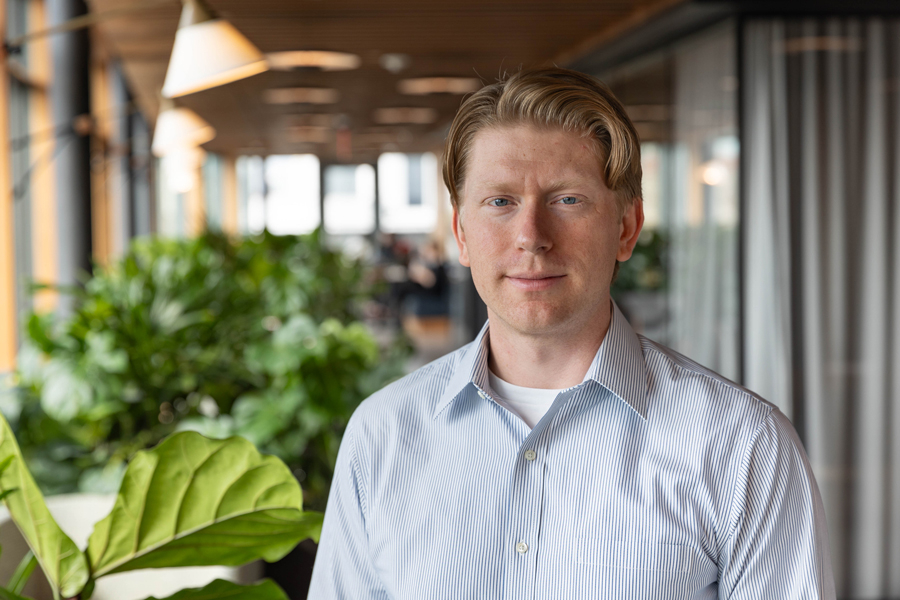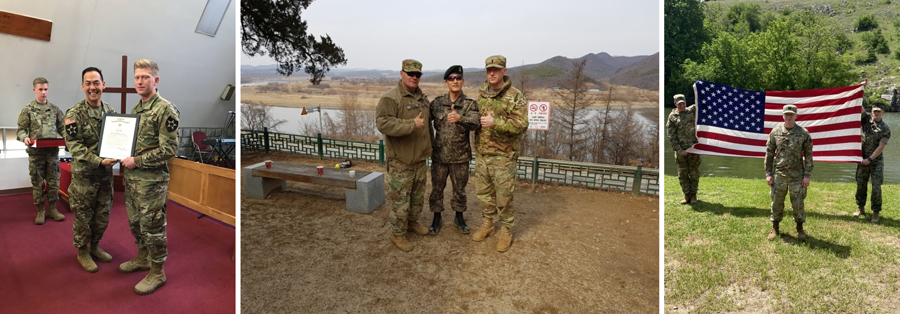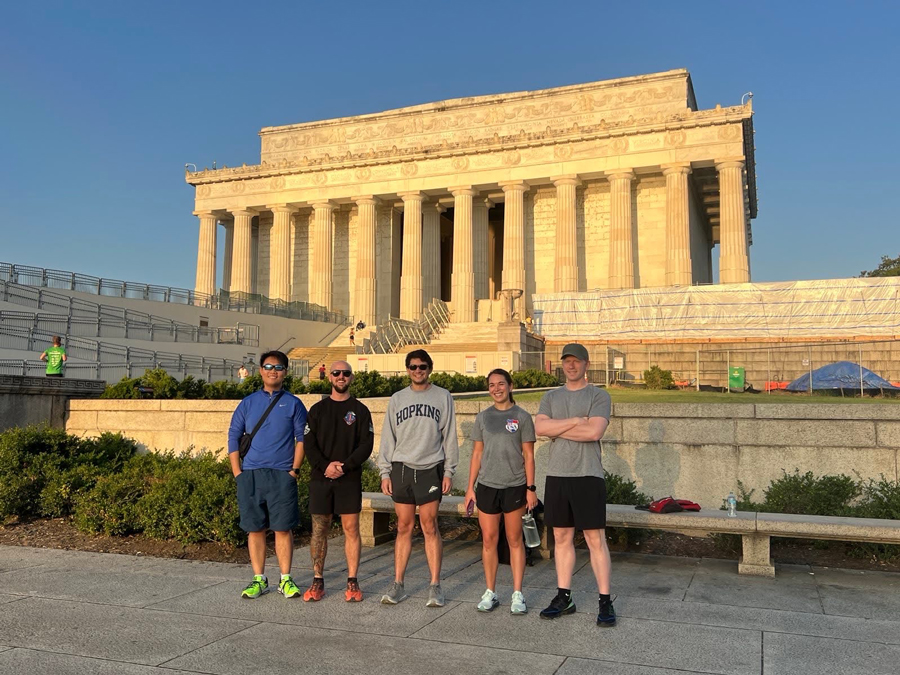From West Point to the Hopkins-Nanjing Center

Name: Mike Donmoyer
Home Country: United States
Degree: Certificate in Chinese and American Studies + MAIR
What led you to Johns Hopkins SAIS?
When I was a cadet at West Point, I took courses on comparative politics and China’s government and politics taught by a professor who earned her master’s and PhD at SAIS. I really enjoyed her detailed and engaging teaching style, and I found her advice on military and international relations careers to be incredibly helpful. Because of her, I started looking into the programs SAIS offers. As soon as I learned about the Hopkins-Nanjing Center, I knew that I would study there one day, no matter what it took.
Where did you grow up and what drew you to a career in the U.S. military?
I was born and raised in Hagerstown, Maryland, which is just a short trip up the road from Wasington, D.C. No one in my immediate family served in the military, so my inspiration to serve largely came from reading military history. The stories of those who served before me filled me with a sense of responsibility to do my part as well. When I thought far into my future, I wanted to be able to look back and say that I served my country. So when I received a flyer in the mail from West Point, I knew a service academy or ROTC program would be the best fit for me. Ultimately, I hoped to pursue a public service career somewhere in the broad field of international relations, so I considered military service to be a great first step into this world.The military forced me to critically reflect on what I really want to achieve and what impact I want to have on others, which led me to SAIS.
Why did you pick the service branch you joined and how long did you serve?
Surprisingly, it was that flyer I received in the mail that first shaped my choice of service branch. It was the first time I began to seriously consider military service. So, naturally I began looking into West Point and the Army. Putting service branch rivalries aside, I was most drawn to West Point for its long history, traditions, and the alumni’s legacy of service. More importantly, I was drawn by the breadth of career options in the Army, as well as the very human nature of its operations. There is an Army function equivalent to almost every career field you could find in the private sector.
The Military Affiliated Students of SAIS, a student-led club at SAIS, during their 9/11 memorial stair climb.
How has your time in the military helped you with personal and professional growth?
The Army, much like the other service branches, instills in one a confidence and sense of responsibility far beyond one’s years. You quickly learn what it feels like to fail and realize that, a vast majority of the time, the outcome is never as bad as you feared, so long as you pick yourself up, learn from your mistakes, and try again. The military is one of the few jobs where the exercise of leadership is practiced in its purest form. I struggle to think of anywhere outside the military where I would have been responsible for the morale, welfare, training, and readiness of over 20 people at the age of 23.My service also taught me the difference between leadership and management. Although they are both indispensable in the workplace, there are times when exercising one can be more important than the other. As anyone who has served will tell you, the mission comes first in the military. Even more so after their service, veterans go through a process of learning how to approach work-life balance and prioritize what is most important to them. Even three years later, I am still figuring it out. Helping others through this transition process and staying connected with those who are still on active duty has continued to be a part of my life as the president of Military Affiliated Students of SAIS. The military forced me to critically reflect on what I really want to achieve and what impact I want to have on others, which led me to SAIS.

What has been your favorite experience at SAIS and why?
My time at the Hopkins-Nanjing Center has by far been one of the most meaningful and impactful experiences of my life. HNC’s close-knit community, with many of the students living outside of their home countries, reminded me a lot of my first military assignment to South Korea and the friendships I built there. There is a unique atmosphere to this type of environment that is impossible to replicate elsewhere, and encouraging these types of shared experiences motivated me to serve on the HNC Student Committee, the Banwei.It is impossible for me to point to a single HNC experience as my favorite, but the most noteworthy include HNC’s annual Halloween party, karaoke nights in the student lounge, group dinners after class at local restaurants, traveling with my family to Zhangjiajie and Hainan, and a weekend trip to Hong Kong and Macau. The opportunity to learn from Chinese professors in an open and free academic environment is unparalleled by any other institution, and I got to see things in China I never could have as a tourist, including a tour of Asian Infrastructure Investment Bank’s headquarters in Beijing and observing court proceedings in Nanjing. The Asia Career Trek to Shanghai was an incredible opportunity to learn about working for multinational companies in China, and we also attended a career event at the U.S. Consulate General Shanghai. I also enjoyed Professor Arase’s and Professor Maull’s Indo-Pacific Security course taught jointly with the Bologna campus. It was an excellent opportunity for cross-campus collaboration.
What do you plan on pursuing after graduation?
I came to SAIS with the goal of working at the Department of State, either in the foreign service or in the civil service on Indo-Pacific regional security policy. While this remains my primary career goal, I have been exposed to so many other fields through SAIS Career Services and my classmates that I never would have known much about on my own. The pace of global change, the impact of emerging technologies, and the urgency of addressing transnational challenges has inspired my long-term career dream of working on the Department of State’s policy planning staff, particularly on issues such as security on the Korean Peninsula, where my time in the military, human rights work, and knowledge of China can be best applied.What is one piece of advice you would give to students in the process of choosing graduate schools?
First and foremost, be true to your passions and what really drives you. I recommend researching what distinguishes each program you are considering, what matters most to your professional development, and making a short list of target programs instead of overextending yourself. Also, everyone has something about them that is unique. Identify what that is and then try to go one step beyond that. For me, that was my military experience, but when writing my application I also thought, “What makes me unique as a veteran?” This process will not only help you put together a strong application but also could help guide your future academic and career decisions while in your graduate program of choice, as it has done for me.If you are looking to learn more about what it's like to be a current student at Johns Hopkins SAIS, we encourage you to schedule a virtual appointment with one of our Admissions Fellows.
Enjoyed reading Mike's experience? Learn more about our Certificate in Chinese and American Studies + MAIR.
Back to Student Stories